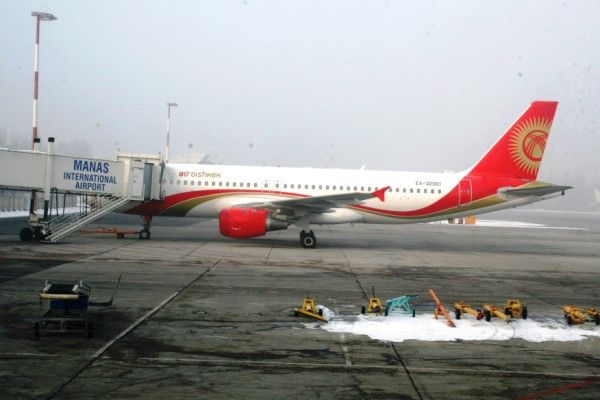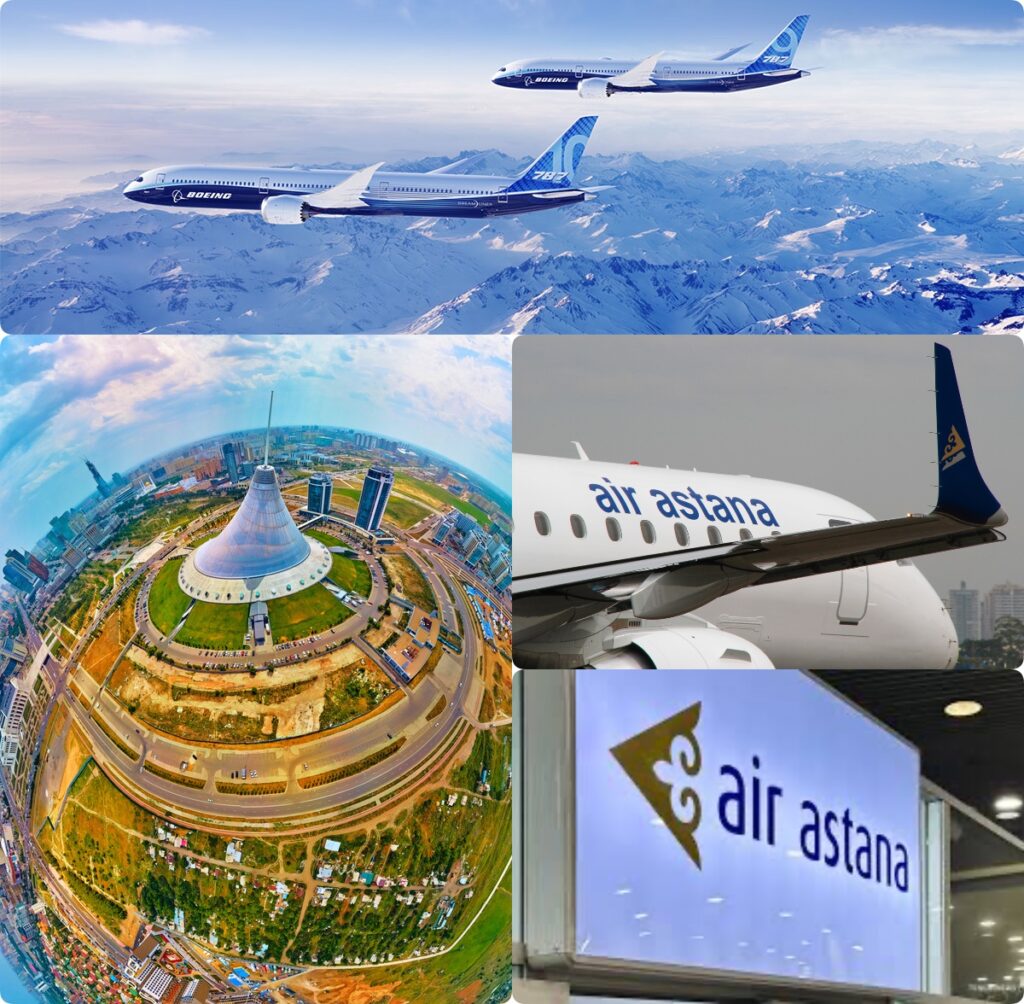BISHKEK (TCA) — Kyrgyz MPs offered to sell the national airline Air Kyrgyzstan to Chinese investors. Earlier, Chinese companies expressed interest in purchasing Air Kyrgyzstan.
If purchased, the investor promised to bring 12 aircraft to the company within five years, the MPs said.
Minister of Transport and Roads of Kyrgyzstan Jamshitbek Kalilov confirmed the interest of Chinese investors in the purchase of Air Kyrgyzstan, although there were no official applications to the State Property Management Fund. But even taking into account the difficult financial situation of the airline, the minister considers the idea of selling it to be doubtful.
Current situation
Kyrgyzstan’s state-owned fleet consists of one aircraft, which is not currently operating because its engine is under repair.
Earlier, Kyrgyzstan offered to sell 49% of Air Kyrgyzstan’s shares, but a foreign investor wanted to buy a controlling stake.
According to the State Property Management Fund of Kyrgyzstan, the company’s net profit plan for 2017 was 10.6 million soms but the result was 7 million soms without dividends. Air Kyrgyzstan’s assets are 639.8 million soms, and loan debt is 302.6 million soms.
Due to the difficult financial situation, the company cannot pay salaries to its employees, and it was forced to reduce the staff.
The company has four aircrafts including a Boeing 737-500 which stands idle at the Manas International Airport due to technical malfunction of its engine, and Air Kyrgyzstan’s flights are postponed indefinitely. The second aircraft, a Boeing 737-300, is subleased in Romania.
The third one, a Tu-154, has not been operated since 2012, when the Aviation Department imposed a restriction on this kind of aircrafts due to aviation safety rules. The fourth aircraft, a Boeing 737-200, has not been operated since 2009.
Unable to compete
The analysis of Air Kyrgyzstan’s financial and economic activity revealed two reasons why the airline came to this situation.
In 2008, the State Property Fund transferred the shares of the Altyn Air state-owned airline from the Kyrgyzaltyn JSC to Air Kyrgyzstan, which resulted in debts of 94.5 million soms. Kyrgyzaltyn, the state owned gold mining company and the shareholder of Centerra Gold Inc., tried to return this amount in 2010 through the courts, but the then government helped Air Kyrgyzstan to pay off the debt within three years.
The second cause is competition. In 2012 and 2013, large Turkish airlines, Atlasjet and Pegasus, entered the Kyrgyz market. In addition, the Russian Aeroflot operated there. Air Kyrgyzstan did not have modern aircrafts to compete.
Since January 2018, the airline has not operated flights, and over 30 employees are on leave without pay.
Privatization or trust management?
The national privatization program for 2015-2017 provided for the privatization of 51% of the state share in Air Kyrgyzstan. The State Property Fund conducted negotiations with Korean, Arab and Chinese investors, but to no avail. The state-owned company did not have support from the State, and investors did not want to deal with it. The Chinese side requested a controlling stake but according to Kyrgyzstan’s law, 51% of the company’s assets should be in the state ownership.
The large debt also deprives the company of investment attractiveness.
The next privatization program for 2018-2020 provides for the sale of 75% of the company’s shares.
The possibility of transferring the company into trust management is also considered by authorities. In this case, the company will not be transferred to ownership, but its assets and the property will be transferred for temporary use.
Some experts disagree with the MPs’ proposal to transfer the company to foreign investors.
Each state should have its own airline not only to carry passengers, but also for strategic purposes, independent expert Maksat Chakiyev told to the Vesti.kg news agency. In case of emergency, the state company could be used because private companies could refuse or demand too high payment. Kyrgyzstan does not have money to invest in Air Kyrgyzstan, but this does not mean that it must be sold. At least a controlling stake should belong to the State, the expert concluded.
Open skies policy
The open skies project will destroy domestic civil aviation, MP Ulugbek Ormonov said recently at a parliamentary meeting to consider the draft law “On Amendments to the Air Code of the Kyrgyz Republic”.
MP Abdyvakhap Nurbayev objected by saying: “We should not put the interests of several airlines above the interests of all citizens of Kyrgyzstan.” The country’s population will have opportunity to fly directly to European and other countries. The competition will improve, and tourists will be able to fly directly to Kyrgyzstan. Air ticket prices will drop and flight safety will be ensured due to using new aircrafts, Nurbayev said.
In other countries, introduction of the open skies policy allowed to increase passenger traffic by up to 35%, reduce air ticket prices by 40%, and create new jobs, he added.
The Government drafted the relevant bill, and its joint version was agreed with the Parliament. After discussions, the Parliamentary Committee on Transport and Communications approved the amendments to the Air Code, which envisages the implementation of the open skies project in stages.
According to Chairman of the Trade Union of Aviators of Kyrgyzstan Kanybek Kalmurzayev, the domestic aviation does not develop because the Transport Ministry does not pay enough attention to it. Even in Tajikistan, where there was a civil war for many years, there are 18 state-owned aircrafts.
Exit from the EU blacklist
The action plan on the withdrawal of Kyrgyzstan’s airlines from the blacklist of the European Union has been 93% implemented, Transport Minister Kalilov said at a government meeting.
The EU Air Safety List (the so-called blacklist) includes airlines that do not meet international safety standards and are therefore subject to an operating ban or operational restrictions within the European Union.
All of Kyrgyzstan’s airlines currently remain on the EU blacklist since 2006, along with airlines from Afghanistan, Angola, Mozambique, Congo, and other African countries. Among the CIS countries, only Kyrgyz airlines are now forbidden to fly to the European Union. In December 2016, the European Commission excluded Kazakhstan’s airlines from its blacklist “following further improvements to the aviation safety situation in that country”.
Kyrgyzstan has been an ICAO (the International Civil Aviation Organization) member since 1992. In order to be taken off the blacklist, the state has to pass through the ICAO audit, which regulates the civil aviation. The basis audit includes such sections as primary aviation legislation, principles of civil aviation organization, aeronautical personnel licensing, operation of aircrafts, airport and ground-based air navigation services, and aircraft accident investigation.
In November or December 2018, ICAO experts are expected to arrive in Kyrgyzstan to monitor the implementation of the corrective action plan of the previous ICAO audit in the middle of 2018.
In 2019, Kyrgyzstan plans to obtain an ICAO certificate, after which the country will apply for exit from the EU blacklist. To be removed from the blacklist, the salary of the Civil Aviation Agency’s employees was increased twice, and pilots were trained in accordance with the ICAO requirements, Minister Kalilov said.








